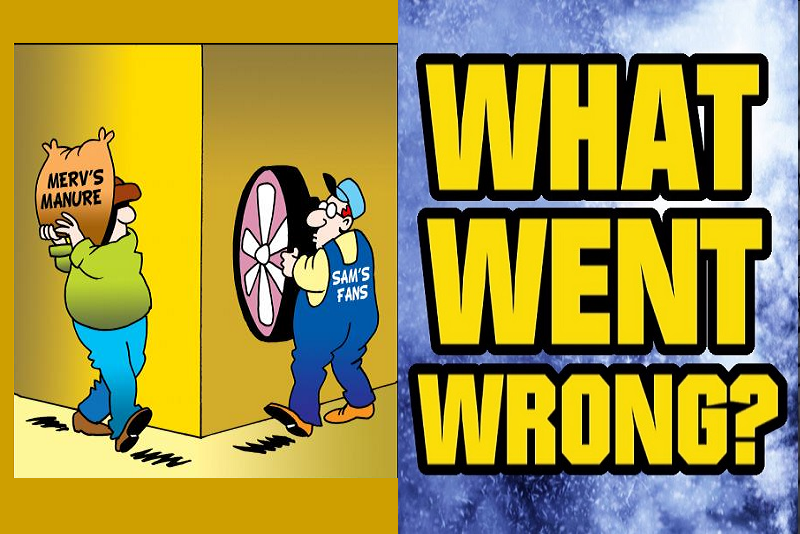BROWSE BY TOPIC
- Bad Brokers
- Compliance Concepts
- Investor Protection
- Investments - Unsuitable
- Investments - Strategies
- Investments - Private
- Features/Scandals
- Companies
- Technology/Internet
- Rules & Regulations
- Crimes
- Investments
- Bad Advisors
- Boiler Rooms
- Hirings/Transitions
- Terminations/Cost Cutting
- Regulators
- Wall Street News
- General News
- Donald Trump & Co.
- Lawsuits/Arbitrations
- Regulatory Sanctions
- Big Banks
- People
TRENDING TAGS
Stories of Interest
- Sarah ten Siethoff is New Associate Director of SEC Investment Management Rulemaking Office
- Catherine Keating Appointed CEO of BNY Mellon Wealth Management
- Credit Suisse to Pay $47Mn to Resolve DOJ Asia Probe
- SEC Chair Clayton Goes 'Hat in Hand' Before Congress on 2019 Budget Request
- SEC's Opening Remarks to the Elder Justice Coordinating Council
- Massachusetts Jury Convicts CA Attorney of Securities Fraud
- Deutsche Bank Says 3 Senior Investment Bankers to Leave Firm
- World’s Biggest Hedge Fund Reportedly ‘Bearish On Financial Assets’
- SEC Fines Constant Contact, Popular Email Marketer, for Overstating Subscriber Numbers
- SocGen Agrees to Pay $1.3 Billion to End Libya, Libor Probes
- Cryptocurrency Exchange Bitfinex Briefly Halts Trading After Cyber Attack
- SEC Names Valerie Szczepanik Senior Advisor for Digital Assets and Innovation
- SEC Modernizes Delivery of Fund Reports, Seeks Public Feedback on Improving Fund Disclosure
- NYSE Says SEC Plan to Limit Exchange Rebates Would Hurt Investors
- Deutsche Bank faces another challenge with Fed stress test
- Former JPMorgan Broker Files racial discrimination suit against company
- $3.3Mn Winning Bid for Lunch with Warren Buffett
- Julie Erhardt is SEC's New Acting Chief Risk Officer
- Chyhe Becker is SEC's New Acting Chief Economist, Acting Director of Economic and Risk Analysis Division
- Getting a Handle on Virtual Currencies - FINRA
ABOUT FINANCIALISH
We seek to provide information, insights and direction that may enable the Financial Community to effectively and efficiently operate in a regulatory risk-free environment by curating content from all over the web.
Stay Informed with the latest fanancialish news.
SUBSCRIBE FOR
NEWSLETTERS & ALERTS
Mitigating the Problems When 'Sh_t Hits the Fan'
[Image: from toonpool.com]
by Howard Haykin
At some point in time, every firm will need to upgrade or replace its electronic records storage system. And at that moment, firms need to anticipate the many things that can go wrong – because, as we all know, ‘sh_t is bound to hit the fan’. Just ask Virtu Financial Capital Markets.
While I’m not familiar with all the specifics of Virtu’s disciplinary case or the details of its e-records storage system conversion, this much can be said from FINRA’s findings: while transitioning from a WORM-compliance electronic system, this market maker encountered numerous problems:
- the firm failed to retain 46 million transaction records;
- the firm didn’t notify FINRA in advance that it was retaining a new vendor;
- the firm didn’t implement an audit system to monitor the inputting of records to the new system;
- the firm didn’t obtain a required attestation from the vendor; and,
- violations continued to crop up 4 years after the transition. [See FINRA AWC #2016051831201.]
While it may be obvious to say, enormous planning and ongoing project management are necessary for any significant infrastructure make-overs or upgrades. And, when unplanned problems occur - like transaction records not uploading or being retained – firms must have the wherewithal to promptly detect them and act on them. A Plan B and even a Plan C must be in place.
Why so important? Beyond effective infrastructure logistics, when FINRA metes out disciplinary sanctions in response to any resulting violations, it will view in a more favorable light a firm that acted in good faith, sought guidance about its obligations, yet subsequently violated the rules. [See ‘FINRA’s Susan Schroeder on Enforcement Actions’.] Such intentions were not apparent with Virtu, where numerous violations and deficiencies continued to crop up for 4 years after the firm transitioned to its new storage system.
INTENTIONS. PLANNING. IMPLEMENTATION. RESPONSIVENESS.





